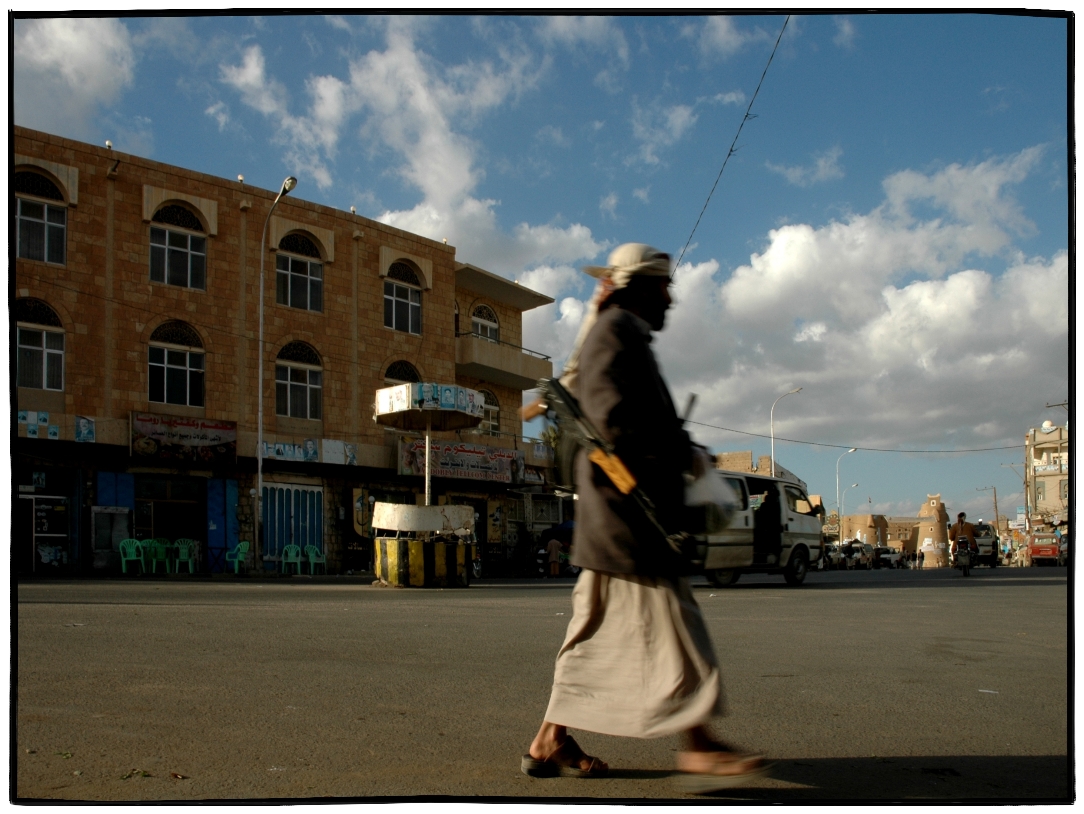The first attack took place on 24 November against a convoy of Houthi followers in al-Jawf Governorate on its way to mark Ghadir Day (a Shia event), killing 23 and wounding dozens. The second blast, two days later, left two dead and 14 injured.
Abdulhamid Amer, a tribal leader from al-Jawf Governorate, told IRIN the dead in both incidents were supporters or fighters of the Houthi Shiite (Zaidi) rebels, who have been observing an uneasy truce with the government since February.
Al-Qaeda in Yemen, drawn from the Sunni sect, claimed responsibility for both suicide attacks.
In a statement dated 25 November and posted on Jihadist websites on 28 November, Al-Qaeda in the Arabian Peninsula (AQAP) said Houthi rebels were "legitimate targets" and that new attacks were being prepared against them, according to the SITE Intelligence Group, which monitors such sites.
Entitled "Operations to Defend Sunnis", the statement vowed to clear Saada and neighbouring areas of Houthi Shia rebels, who "kill Sunnis, destroy their homes and displace their families".
It was the first time AQAP, which is virulently anti-Shiite, has claimed attacks against Houthi Shias, who have been engaged in an on-off rebellion against the Yemeni government since 2004.
Shiites are in the majority in northern Yemen but are a minority in the country as a whole. Extremist Sunnis despise Shiites and consider them heretics.
Checkpoints
Houthi supporters have set up checkpoints on roads connecting the three governorates and arrested people suspected of being linked to AQAP.
The local independent news website al-tagheer.net reported that in retaliation for the suicide attacks, Houthi followers arrested several Sunni scholars in Al-Hamati village, Majaz District, Saada Governorate. The village's population is known to be affiliated with Salafism, a puritanical creed within Sunni Islam.
"One of the hostages was holding an ID card from the Sunni Eman University, based in the capital Sanaa. He was suspected by Houthis of involvement in the second suicide car bomb," the website said.
At one of more than seven Houthi checkpoints in Harf Sufyan District, Amran Governorate, clashes between Houthi fighers and followers of Sunni cleric Majdaddin al-Moidi left six of the latter dead, according to Sheikh Hamid al-Marrani, a tribal leader from Harf Sufyan District.
"Among the dead was an ailing woman, who was taken by al-Moidi armed followers to receive treatment in one of the hospitals in Amran city," he told IRIN.
Sectarian warfare
Local observers warn that Yemen's northern region, which has been the scene of fighting between the government and Houthi gunmen since 2004, may change into a Sunni-Shiite sectarian battlefield.
"Both suicide bombings resemble those carried out by Al-Qaeda against Shiite groups in Iraq where sectarian violence is commonplace," said Abdussalam Mohammed, head of the local independent Dimensions Centre for Strategic Studies, adding that Saada and neighbouring areas are likely to witness sectarian warfare.
In a statement on 28 November, Houthi Shia rebels accused the USA and Israeli intelligence of being behind both suicide attacks, but Mohammed sees such accusations as "merely an attempt by Houthis to maintain the popular and tribal sympathy they earned during their fight with Yemen's army".
There are many more weapons in the three northern governorates as a result of intermittent fighting since 2004, "a fact that serves as a serious motive for complicated sectarian warfare between Houthi-led Shias and Sunnis," Mohammed Abdulhamid, a tribal sheikh from the central governorate of Ibb, told IRIN.
Ineffective local authorities in these areas are also “a helping factor for a potential expansion of sectarian violence", he added.
ay/cb
This article was produced by IRIN News while it was part of the United Nations Office for the Coordination of Humanitarian Affairs. Please send queries on copyright or liability to the UN. For more information: https://shop.un.org/rights-permissions




